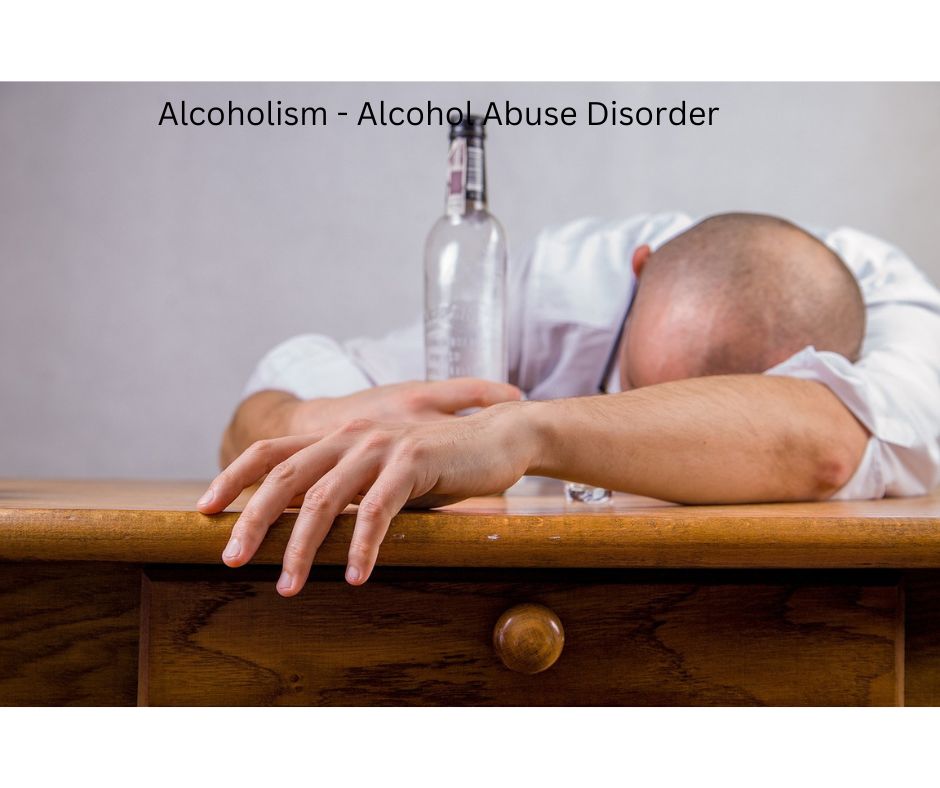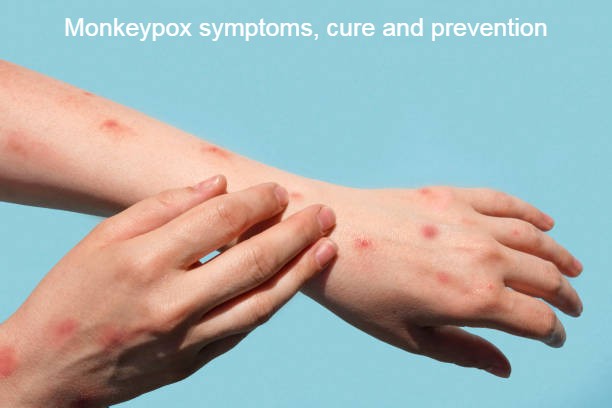Alcohol abuse disorder, also known as alcoholism, is a chronic and potentially life-threatening condition characterized by a compulsive and uncontrollable need to drink alcohol despite its negative consequences. Individuals with alcohol abuse disorder may experience a range of physical and psychological symptoms, including tolerance, withdrawal, and impaired judgment. The disorder can also lead to a variety of health problems, such as liver disease, cancer, and heart disease. Treatment for alcohol abuse disorder often involves a combination of therapy, medication, and support groups, and early intervention can improve the chances of successful recovery. In this article, you will know symptoms, causes, and treatment of alcohol abuse disorder.
Table of content
- Alcohol Abuse Disorder Symptoms
- Alcohol Abuse Disorder Causes
- Alcohol Abuse Disorder Diagnosis
- Alcohol Abuse Disorder Treatment
Alcohol Abuse Disorder Symptoms
Alcohol abuse disorder, also known as alcoholism, can manifest in various ways and may vary from person to person. Some of the common symptoms of alcohol abuse disorder include:
- Compulsive need to drink alcohol – Individuals with alcohol abuse disorder may experience an intense craving or urge to consume alcohol, often to the point of feeling unable to control or limit their drinking.
- Tolerance – Over time, an individual with alcohol abuse disorder may require larger amounts of alcohol to experience the desired effects, due to the development of tolerance.
- Withdrawal – When an individual with alcohol abuse disorder stops or reduces their alcohol intake, they may experience physical and psychological symptoms, such as tremors, sweating, anxiety, irritability, and nausea.
- Continued drinking despite negative consequences – Even when facing negative consequences such as problems at work, legal issues, or relationship problems, individuals with alcohol abuse disorder may continue to drink.
- Neglecting responsibilities – Alcohol abuse disorder can interfere with an individual’s ability to fulfill their responsibilities at work, school, or home.
- Social isolation – An individual with alcohol abuse disorder may withdraw from social activities and hobbies they once enjoyed, preferring to drink alone.
- Using alcohol as a coping mechanism – Individuals with alcohol abuse disorder may use alcohol to cope with stress, anxiety, depression, or other mental health issues.
Alcohol Abuse Disorder Causes
The causes of alcohol abuse disorder, like many other substance use disorders, are complex and can involve a combination of genetic, environmental, and psychological factors. Here are some of the potential causes:
- Genetic factors – Studies have shown that there may be a genetic component to alcohol abuse disorder, meaning that an individual may be more likely to develop the disorder if they have a family history of alcoholism.
- Environmental factors – The environment in which an individual grows up can also play a role in the development of alcohol abuse disorder. Factors such as parental alcoholism, childhood abuse or trauma, and peer pressure can increase the risk of developing the disorder.
- Mental health disorders – Individuals with certain mental health disorders, such as depression, anxiety, and post-traumatic stress disorder (PTSD), may be more likely to develop alcohol abuse disorder as a way to self-medicate their symptoms.
- Social and cultural factors: Cultural attitudes towards alcohol consumption and the availability of alcohol can also contribute to the development of alcohol abuse disorder.
- Stressful life events: Traumatic or stressful life events, such as divorce, job loss, or the death of a loved one, can increase the risk of developing alcohol abuse disorder as a way to cope with the stress and emotional pain.
Alcohol Abuse Disorder Diagnosis
Diagnosing alcohol abuse disorder typically involves a thorough evaluation of an individual’s physical and mental health, as well as their drinking habits and behaviors. Here are some of the steps involved in the diagnostic process:
- Physical exam and medical history – A healthcare professional will conduct a physical examination to assess for any physical symptoms of alcohol abuse disorder, such as liver damage or malnutrition. They may also ask about the individual’s medical history and any medications they are currently taking.
- Diagnostic criteria – The healthcare professional will use the Diagnostic and Statistical Manual of Mental Disorders (DSM-5) criteria to evaluate the individual’s symptoms and determine if they meet the criteria for alcohol abuse disorder.
- Blood tests – Blood tests may be done to assess liver function, as well as to screen for other medical conditions that may be associated with alcohol abuse disorder.
- Psychological evaluation – A healthcare professional may also conduct a psychological evaluation to assess for any underlying mental health conditions that may be contributing to the individual’s alcohol abuse.
- Family history – The healthcare professional may also inquire about the individual’s family history of alcohol abuse disorder or other substance use disorders.
Alcohol Abuse Disorder Treatment
Treatment for alcohol abuse disorder typically involves a combination of therapy, medication, support groups, and lifestyle changes. Here are some of the common approaches to treating alcohol abuse disorder:
- Detoxification – Individuals with alcohol abuse disorder may need to undergo detoxification, which involves gradually reducing alcohol intake under medical supervision. Medications may be used to ease withdrawal symptoms.
- Behavioral therapy – Behavioral therapies such as cognitive-behavioral therapy (CBT) and motivational interviewing (MI) can help individuals to identify and change negative patterns of thinking and behavior related to alcohol use.
- Medications – Medic#+ations such as acamprosate, naltrexone, and disulfiram may be used to help reduce alcohol cravings and manage withdrawal symptoms.
- Support groups – Support groups such as Alcoholics Anonymous (AA) or SMART Recovery can provide individuals with the support and guidance they need to stay sober.
- Lifestyle changes – Making lifestyle changes such as eating a healthy diet, getting regular exercise, and practicing stress-reduction techniques such as meditation or yoga can help individuals to maintain their sobriety and improve their overall health and well-being.
It is important to note that treatment for alcohol abuse disorder is highly individualized and may require a combination of approaches. Seeking professional help and support is crucial for successful recovery.
How to Stay Away from Alcohol Abuse Disorder
Here are some tips for staying away from alcohol abuse disorder:
- Set limits for yourself – Decide on a reasonable limit for how much alcohol you will consume and stick to it. For example, limit yourself to one or two drinks per day, or only drink on special occasions.
- Find healthy ways to cope with stress – Instead of turning to alcohol as a way to deal with stress, find healthy ways to cope, such as exercise, meditation, or talking to a trusted friend or therapist.
- Avoid triggers – If certain situations or people tend to trigger your desire to drink, try to avoid them. For example, if going to bars with friends often leads to excessive drinking, suggest a different activity instead.
- Surround yourself with supportive people – Surround yourself with people who support your decision to avoid alcohol and who will not pressure you to drink.
- Get help if you need it – If you find that you are struggling to stay away from alcohol or have developed a dependence on it, seek professional help from a doctor, therapist, or support group.
Remember that alcohol abuse disorder is a serious condition that can have negative consequences for your health and relationships. By taking steps to stay away from alcohol abuse disorder, you can lead a healthier and happier life.
Conclusion
Alcohol abuse disorder is a serious condition with complex causes. Diagnosis involves a thorough evaluation of an individual’s health and behaviors, while treatment typically involves a combination of therapy, medication, support groups, and lifestyle changes. Early intervention can improve the chances of successful recovery. Seeking professional help and support is essential for managing the disorder and achieving lasting sobriety.





